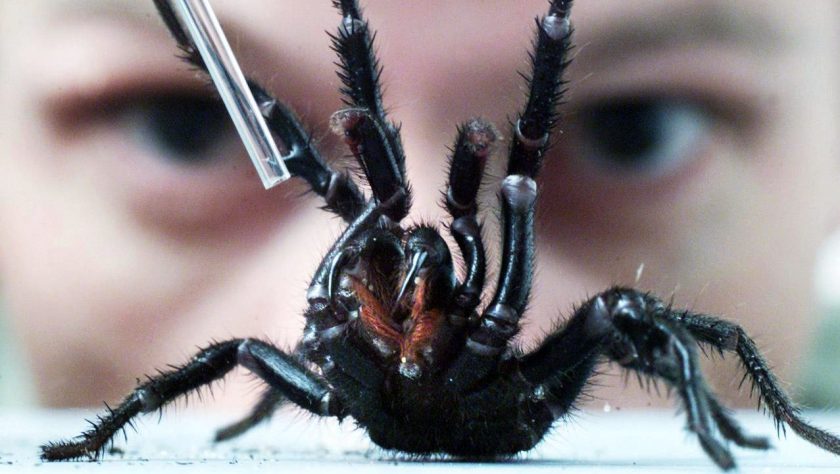
Researchers’ spider-senses are tingling amid signs that an unexpected source could help stem brain damage caused by a stroke, a new study suggests.
Spider venom contains a protein, Hi1a, that has “great promise as a future stroke treatment,” BBC reports. In lab tests, a single dose of the protein showed a positive effect on rats.
Brain damage occurs during a stroke when key parts of the brain are cut off to oxygen, which leads to paralysis for some victims. The condition kills 6.7 million annually, according to the BBC.
The research, published in the Proceedings of the National Academy of Sciences, found the Hi1a blocked ion channels in the brain, a primary cause of neurological damage, for up to eight hours.
The potential breakthrough didn’t come without some danger to the researchers, however. To get the venom, researchers from University of Queensland and Monash University hunted for funnel spiders, one of the deadliest in the world, by digging up their burrows on Australia’s Fraser Island.
Once the arachnids were brought back to the lab, they’re “milked” with a pipette after the spiders are given a mild, non-lethal electric shock, according to the BBC.
Researchers say it’s too early to tell if the treatment could help humans.
—RealClearLife
This article was featured in the InsideHook newsletter. Sign up now.